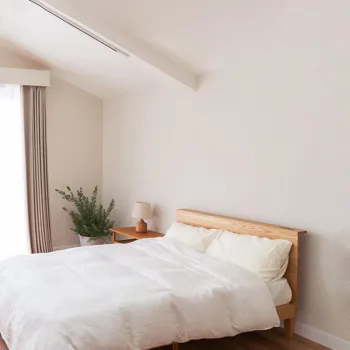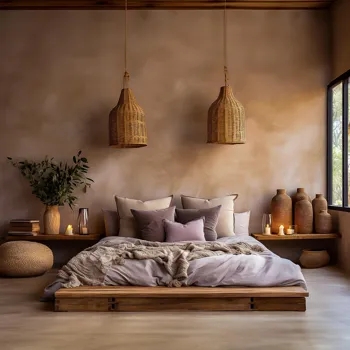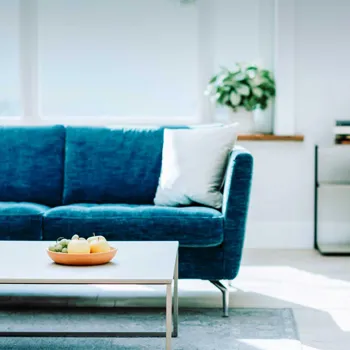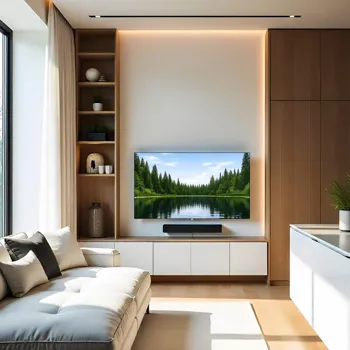Discover the art of lifestyle design for a balanced work-life harmony. Explore 10 principles to craft your ideal lifestyle
In today's fast-paced world, finding a balance between work and personal life can
feel like chasing a mirage. Many Indians are caught in the daily grind, sacrificing their well-being for career advancement or financial security.
However, it is possible to design a life that integrates work and personal pursuits in a harmonious way. This is where the concept of "lifestyle design" comes in – a proactive approach to crafting a life that aligns with your values, passions, and priorities.
Instead of letting life happen to you, lifestyle design empowers you to take control and create a fulfilling existence. It's about intentionally shaping your environment, habits, and relationships to support your desired lifestyle.
Define Your Values and Priorities:
The first step towards designing your ideal lifestyle is to understand what truly matters to you. What are your core values? Is it family, health, creativity, spirituality, or contributing to society? Once you identify your values, prioritize them.
What aspects of your life do you want to dedicate the most time and energy to? Defining your values and priorities will act as a compass, guiding your decisions and ensuring that you're spending your time on things that genuinely bring you joy and fulfillment. This self-reflection is crucial.
Without a clear understanding of your internal compass, you'll find yourself adrift, constantly chasing external validation and societal expectations. Take some time to journal, meditate, or engage in mindful activities to connect with your inner self and uncover your true priorities.
Set Clear Boundaries:
One of the biggest challenges to work-life balance is the blurring of lines between professional and personal time. With smartphones and constant connectivity, it's easy to fall into the trap of being "always on." To protect your personal time, set clear boundaries.
Establish specific work hours and stick to them as much as possible. Turn off notifications on your phone and computer after work hours. Communicate your boundaries to your colleagues and clients, letting them know when you're available and when you're not. Learning to say "no" is also essential.
Don't overcommit yourself to tasks or projects that will encroach on your personal time. Remember, your time is valuable, and you have the right to protect it.
This might require some uncomfortable conversations initially, but in the long run, it will lead to a more sustainable and fulfilling lifestyle.
Embrace Minimalism and Declutter:
Material possessions can often weigh us down, both physically and mentally. The constant desire for more stuff can lead to stress, anxiety, and a feeling of being trapped in a cycle of consumption. Embrace minimalism by decluttering your home and your life. Get rid of things you don't need or use.

Simplify your wardrobe, your kitchen, and your digital life. Minimalism isn't about deprivation; it's about intentionally focusing on what truly adds value to your life.
By reducing clutter, you'll create more space for things that matter, such as spending time with loved ones, pursuing hobbies, or simply relaxing. A decluttered environment can also promote a sense of calm and clarity, making it easier to focus on your goals and priorities.
Consider donating unwanted items to charity or selling them online – it's a win-win situation.
Automate and Delegate:
Time is your most precious resource, so it's essential to use it wisely. Identify tasks that are repetitive, time-consuming, or that you simply don't enjoy doing. Explore ways to automate these tasks, either through technology or by delegating them to others.
For example, you could use online tools to automate your finances, schedule social media posts, or manage your email inbox. At home, you could hire someone to help with cleaning, cooking, or gardening.
Delegating doesn't mean you're lazy; it means you're being strategic about how you spend your time. By freeing up your time, you can focus on activities that are more rewarding, stimulating, or that contribute to your overall well-being.
Look at technology for automatic payments or groceries delivered to your doorstep. This is an easy win and saves time.
Prioritize Self-Care:
Self-care is not selfish; it's essential for maintaining your physical and mental health. Make time for activities that nourish your body, mind, and soul.

This could include exercising, eating healthy foods, getting enough sleep, spending time in nature, practicing yoga or meditation, or engaging in creative pursuits. Self-care is about listening to your body's needs and responding with compassion.
Don't wait until you're feeling burnt out or overwhelmed to prioritize self-care. Integrate it into your daily routine. Even small acts of self-care, such as taking a few minutes to meditate or read a book, can make a big difference in your overall well-being.
Remember, you can't pour from an empty cup, so make sure to replenish your energy regularly.
Cultivate Meaningful Relationships:
Human connection is essential for our well-being. Cultivate meaningful relationships with your family, friends, and community. Spend quality time with your loved ones, engage in shared activities, and offer support when needed.
Nurturing your relationships will provide you with a sense of belonging, connection, and purpose. It's also important to surround yourself with positive and supportive people who uplift and inspire you.
Distance yourself from toxic relationships that drain your energy and make you feel bad about yourself. Remember, you are the average of the five people you spend the most time with, so choose your companions wisely. Invest time in building relationships.
Learn to Say No:
Overcommitting is a common cause for burn out. Take a good look at your commitments to see if saying "no" would free up time.

Embrace Flexibility:
Life is unpredictable, and things don't always go according to plan. Be prepared to adapt and adjust your lifestyle design as needed. Embrace flexibility and be open to new opportunities and experiences. Don't be afraid to experiment with different work arrangements, living situations, or hobbies.
The key is to find what works best for you at each stage of your life. Regularly re-evaluate your lifestyle design and make adjustments to ensure that it continues to align with your values and priorities. Life is a journey, not a destination, so enjoy the process of creating a life that you love.
Seek Inspiration and Support:
Designing a fulfilling lifestyle can be challenging, especially in the beginning. Seek inspiration and support from others who are living intentionally. Read books, listen to podcasts, attend workshops, or join online communities focused on lifestyle design.

Connect with like-minded individuals who can offer encouragement, advice, and accountability. Remember, you're not alone on this journey. There are many people who are striving to create a more balanced and fulfilling life, and you can learn from their experiences.
Even consulting a career counselor can help explore work options and balance your life.
Be Patient and Persistent:
Lifestyle design is not a quick fix; it's a process that takes time, effort, and commitment. Be patient with yourself and don't expect to see results overnight. There will be setbacks and challenges along the way, but don't give up.

The key is to stay persistent, keep learning, and keep refining your approach. Remember, every small step you take towards designing your ideal lifestyle is a step in the right direction. Celebrate your progress along the way and don't be afraid to ask for help when you need it.
With dedication and perseverance, you can create a life that is both fulfilling and meaningful.
AI Generated Content. Glance/InMobi shall have no liability for the content












